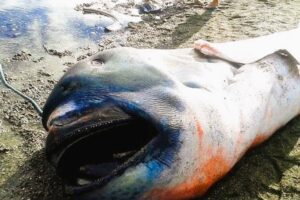
Unguja. The People’s Bank of Zanzibar (PBZ) said at the weekend that investors should expect a seamless process in collecting funds for the newly introduced Sukuk bond.
A statement by the PBZ managing Director, Mr Arafat Haji , followed the launch of the Sharia-compliant Sukuk bond by the Revolutionary Government of Zanzibar last week.
“PBZ is committed to ensuring a seamless, transparent and customer-friendly investment process,” Mr Haji told journalists.
Investors can participate in Sukuk through PBZ branches and digital platforms, ensuring accessibility from anywhere. Sukuk bond offers an attractive return rate of 10.5 percent per annum.
“The bank’s dedicated Islamic banking division, PBZ Ikhlas, offers professional advisory services to guide customers through the investment process. In line with our slogan – The People’s Bank, The People’s Choice – we also guarantee a straightforward and efficient investment process, ensuring timely collection and allocation of funds while upholding the highest standards of compliance with Islamic banking principles,” he said.
Mr Haji said that PBZ takes pride in being a trusted financial partner in Zanzibar’s economic growth, providing customers with an unparalleled opportunity to earn lucrative returns while contributing to national development.
“PBZ invites all customers to take advantage of this opportunity and become part of Zanzibar’s economic transformation,” he added.
The government is leveraging the Sukuk bond to mobilise funds for development projects on the island. The initiative aims to expand financing options beyond traditional loans, according to the minister of State in the President’s Office (Finance and Planning), Dr Saada Mkuya.
Speaking at the Sukuk Bond Board in Zanzibar last week, Dr Mkuya said the introduction of the bond would provide a broader platform for the government to secure funding for key infrastructure projects.
“The funds raised through this bond will be invested in projects that comply with Sharia principles, ensuring accountability and transparency in financial management,” Dr Mkuya said.
As the official collecting bank for the Sukuk investment initiative, launched under the Treasury of the Revolutionary Government of Zanzibar, PBZ plays a pivotal role in supporting the country’s development efforts.
“This initiative offers an exciting and secure opportunity for individuals and institutions to invest in government-backed projects while adhering to Sharia principles,” said Mr Haji.
“By investing in Sukuk through PBZ, customers contribute to the development of key government projects, fostering economic growth and financial inclusion. Investors can expect competitive returns on their funds while supporting strategic national initiatives in infrastructure, energy, and social development.”














